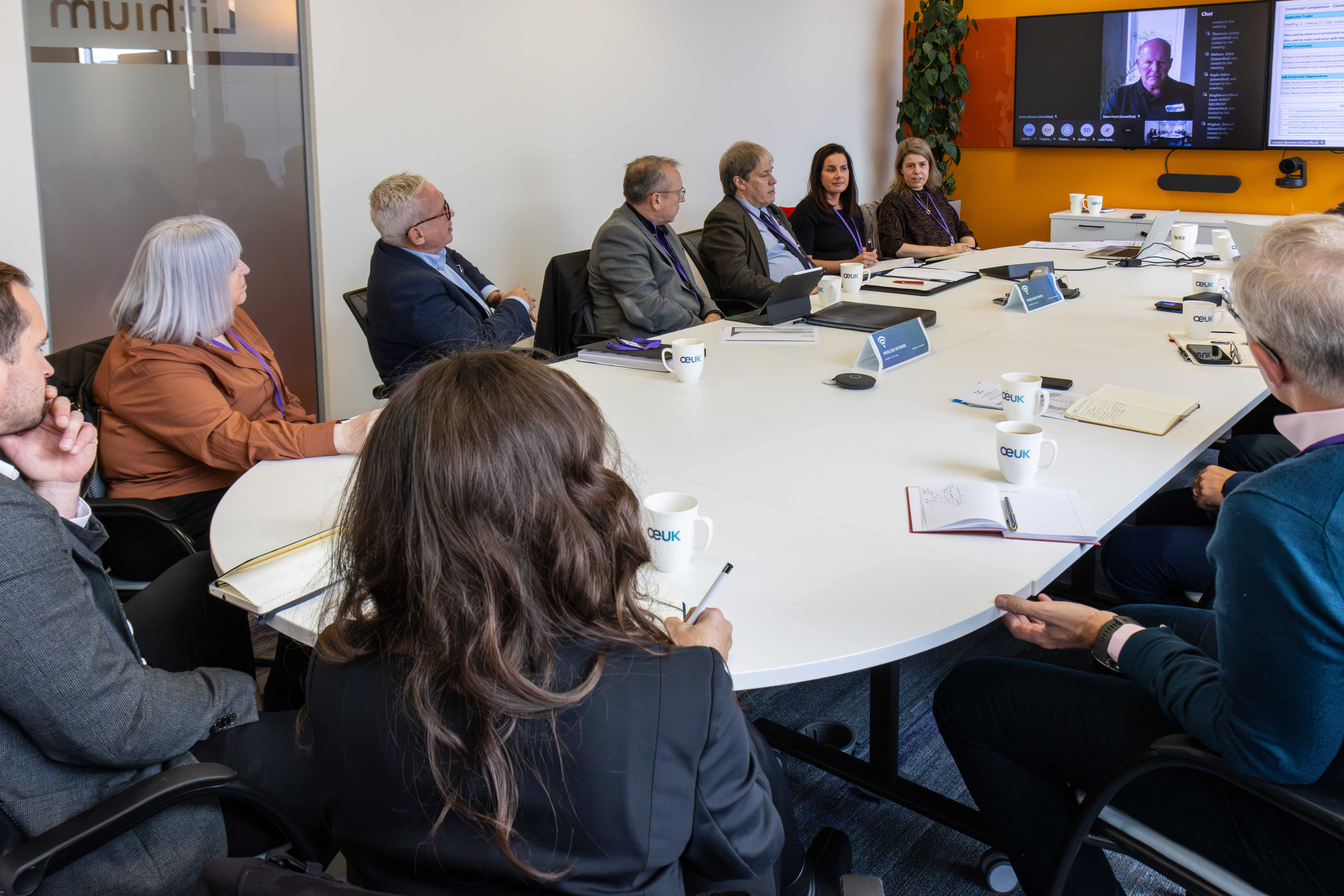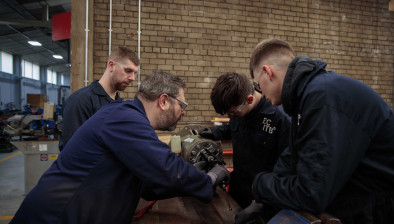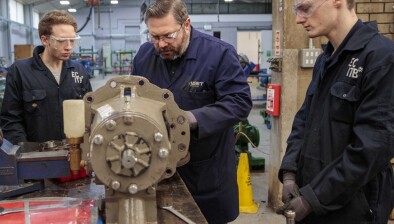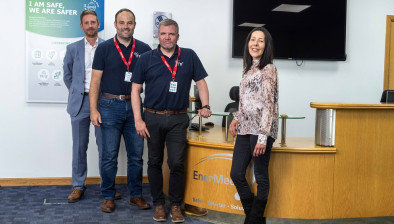Partnership milestone for Connected Competence

Yesterday saw a new milestone for an engineering construction industry Connected Competence scheme, with clients and employers agreeing to a new measurement tool that will ensure the programme is embedded across their operations.
Through industry-recognised, standardised testing, Connected Competence assures an ongoing base level of technical competence for workers across the engineering construction industry to create a safer, technically competent and transferable workforce.
Whilst supported and enabled by the Engineering Construction Industry Training Board (ECITB), Connected Competence is an industry-driven initiative. It was developed in collaboration with some of the UK’s largest contracting companies, each committed to using standardised training and testing based on the ECITB’s technical tests.
The scheme has grown significantly in the last 18 months with ten major contractors and 20 clients signing up to the programme. This includes Aker, Bilfinger, Boskalis, nexos, Petrofac, Ponticelli UK, Semco, Stork UK, Wood, Worley. Clients include Apache, bp, Centrica Energy Storage+, CNOOC, CNR International, Dana Petroleum, ENI, EnQuest, Equinor, Harbour Energy, INEOS Energy, Neo Energy, Neptune Energy, Repsol, RockRose Energy, Serica Energy, Shell, Spirit Energy, TAQA and TotalEnergies.
The programme is designed to reduce the need for repeat training and testing, acknowledging existing certifications and supporting the Just Transition of the energy workforce. It therefore has the backing of Unite the Union, GMB Union and the RMT.
As a measure of good practice in managing safety and competence it is also supported by industry stakeholders including HSE, the Scottish Government, Step Change in Safety, OEUK and NSTA.

In total, 21 Connected Competence clients and employers attended the joint client/contractor session at OEUK’s offices in Aberdeen and agreed to roll out a Client Contractor Collaboration Performance Card. This will formally measure the extent to which Connected Competence is embedded across all partner organisations. The session was also attended by John Boland from Unite the Union.
Andy Brown, chief operating officer at the ECITB, said: “The nature of the oil and gas workforce being transient and mobile was one of the key drivers for Connected Competence. Standardising competence assurance across common trades on an ongoing basis is designed to improve safety and reduce duplication of assessment, which can then speed up mobilisation across sites and sectors.
“This is particularly important with emerging net zero projects and the skills shortages we face. As the Connected Competence programme expands and is recognised across more sectors, it will ensure the workers are agile and their technical competencies are accepted.
“It prevents unnecessary duplication of training and assessment and the costs associated with this. It means workers deployed on sites managed by employers who recognise Connected Competence will not have to undergo repetitive and resource-intensive reviews to verify base technical competence.”
Trades to which this applies include pipefitters, platers, electrical technicians, mechanical technicians, instrument and control technicians, industrial coatings technicians, riggers, appointed persons for rigging and thermal insulators.

Andy added: “Many of our partners who have adopted Connected Competence are diversifying their energy portfolio. Having a recognised ongoing base level of competence across all trades with the same fundamental skillsets will be highly beneficial.
“We believe Connected Competence has other cost benefits for industry as a mature, collaborative approach to competence can mitigate project risk. This is something that has generated interest across the insurance sector and we are pursuing these discussions.
“Connected Competence has been a real collaborative programme, driven by industry but the success of the programme relies on it being embedded across all organisations who provide site-based craft and technician trades and promoting a consistent approach to verifying competence before deployment. This is the reason for introducing the measurement tool today.
“Our network of approved training providers is pivotal in providing the testing infrastructure and we value their support and commitment, particularly for the testing of temporary workers.
“Employers currently have the option to send their own permanent workforce to the testing centre for technical tests or to verify their ongoing technical competence via site-based assessment through naturally occurring work scopes, if they can demonstrate their competence management system maps to the Connected Competence tests.”
The technical tests needed are outlined within the role profile for each discipline on the Connected Competence website. Recruitment teams from Connected Competence employers outline these to workers as a pre-requisite before being deployed.
Workers then just need to identify the most convenient approved training provider to book their test.
On successful completion of the technical tests, workers are awarded a test certificate and a digital badge. The digital badge is owned by the worker and moves with them ensuring their technical competence is recognised by other employers as they move across sites.
The ECITB announced last month that it increased the funding available to enable temporary workers within the engineering construction industry to verify their base level of technical competence through Connected Competence tests.
In 2024, the ECITB has committed £250,000 for the testing of temporary workers to forge a safe, skilled and agile workforce.





















